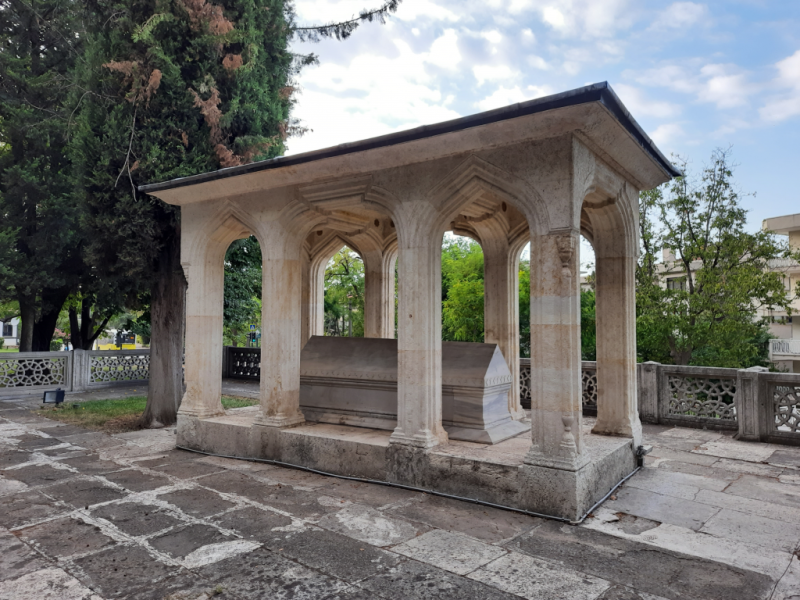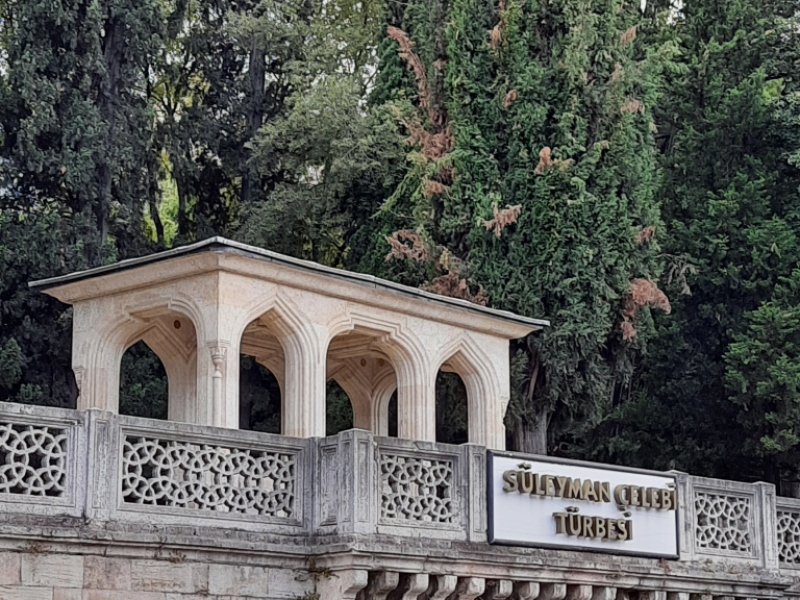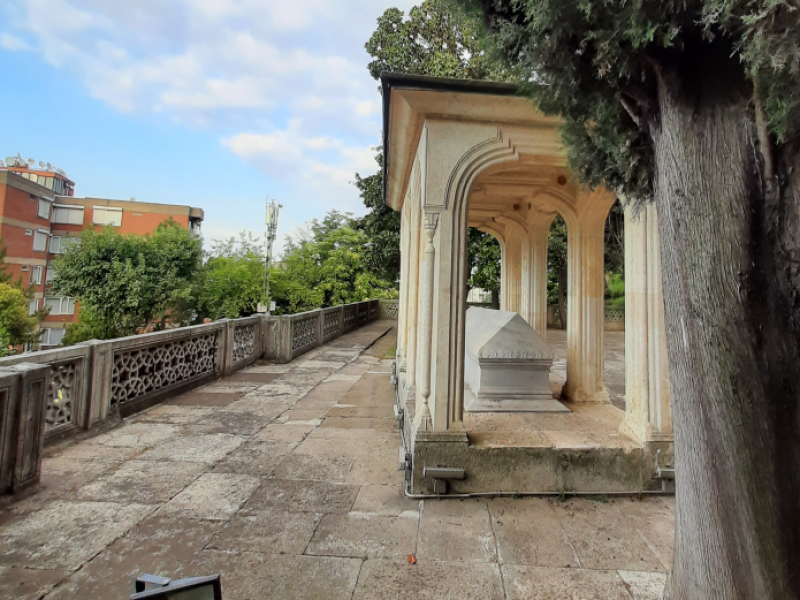Written by Süleyman Çelebi in Bursa in 1409, Vesîletü'n-Necât (Means of Salvation), also known as Mevlid-i Şerif ((eulogy recited to celebrate the birth of the prophet), is the first work written in the Ottoman Empire. Süleyman Çelebi's mawlid consists of 16 parts and 770 couplets. Süleyman Çelebi, when he served as an imam at the Ulu Mosque (1399-1421), decided to write Vesîletü'n-Necât, according to one narration, with the advice of Emir Sultan, or according to another narration, after listening a preacher, who said that he had not considered the last prophet (the Prophet of Islam) superior to other prophets, during a sermon in the Ulu Mosque, thus the tradition started. The manuscript, written in mathnawi (a kind of poem written in rhyming couplets, or more specifically a poem based on independent, internally rhyming lines) type, in a plain and pure Turkish and aruz prosody, is in the Topkapı Palace Library. Today, mawlid ceremonies are organized for social practices, important events, rituals and feasts (engagement, wedding, birth, circumcision, after the death of one's relatives (especially on 7th, 40th and 52nd days), when welcoming pilgrims, when sending one for obligatory military service, hidrellez etc. celebrations) in the mosques, homes, village squares, wedding venues, etc; and tahini halvah, rock candy, pancakes, pilaf with meat, pilaf with chicken, cantik, Turkish delight with walnuts, milk, flour halva are distributed after the mawlid recited by the mawlid reciters or hafizes (those who memorized whole Qur'an).






